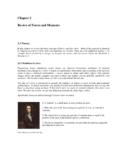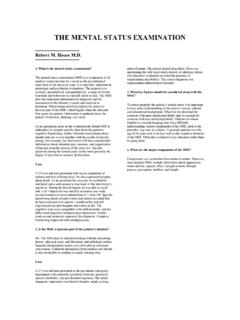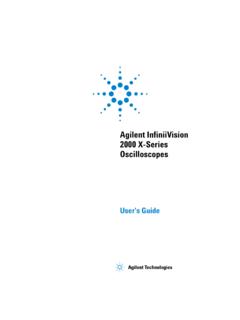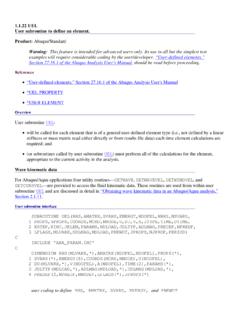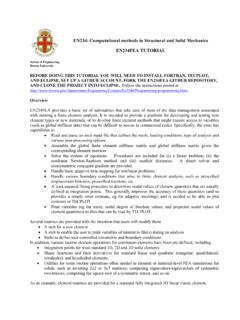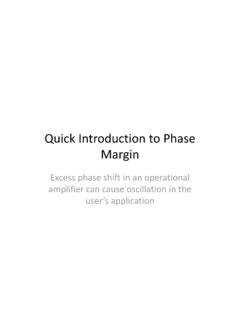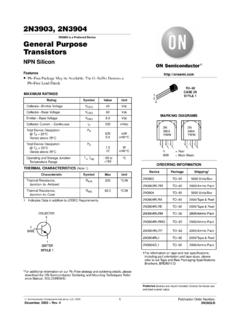Transcription of Equity-Minded Interview Questions - Brown University
1 Resources for Faculty Hiring | Office of Institutional Equity and Diversity | Brown University 1 Guide to Diversifying Faculty Searches Equity-Minded Interview QuestionsIntroduction Interview Questions convey information to the candidate about the department s goals and potential for being a supportive environment. Having Interview Questions that reflect a commitment to inclusion will signal to candidates the department is attempting to engender greater diversity and equity within the department. In addition to requesting that applicants describe their prior, current, and planned contributions to advancing diversity, equity and inclusion in required application materials ( , cover letter, teaching statement, or diversity statement), preparing Equity-Minded Interview Questions will help deepen or clarify the committees understanding of candidates commitment during the Interview process. Prioritizing Equity-Minded Interview Questions in formal Interview protocols will ensure these Questions are asked in a consistent manner to all candidates.
2 Raising Equity-Minded Questions in other contexts, such as immediately after the job talk or over dinner, may also help round out the committee s understanding of finalists commitment to advancing diversity, equity and inclusion in ways that are consistent with the department s goals in its diversity and inclusion action plan. A sample9 of Interview Questions are included below and meant to provide search committees with options to consider. These Questions are not prescriptive and the Office of Institutional Equity and Diversity encourages search committees to use these Questions as starting points for discussion. The objective for search committee members is to listen carefully for complexity and nuance, critical reflection, humility, self-awareness and a commitment to lifelong learning. Search committees should feel empowered to ask follow-up Questions and hold high expectations for responses, signaling that faculty are expected to espouse the values of the department.
3 Sample Interview Questions Teaching Philosophy and Student Success What does it mean to you to be effective in an environment that values diversity and equity? What are some pedagogical techniques you employ to ensure your teaching is responsive across differentidentities and backgrounds? How do you draw upon your student s prior knowledge, backgrounds, and lived experiences in order toinform your teaching, research and service? How does epistemic diversity play a role in your scholarship and teaching? How does your approach to teaching bring in readings and research produced by underrepresented scholarsor about underrepresented people and communities into the learning process? How do you affirm and engage diverse perspectives in the classroom? What techniques do you have for drawing on your students knowledge?9 Some of these Questions are adapted from a workshop on Hiring a Diverse Faculty led by the USC Center for Urban Education, and some are adapted from Sensoy & DiAngelo, 2017.
4 Resources for Faculty Hiring | Office of Institutional Equity and Diversity | Brown University 2 How have you (or could you) use data to identify differences in experiences and outcomes across diversestudents in your class? Please describe your process of doing so (or how you could do it if you do notalready). What would you do (have done) once you notice these differences?Learning, Mentoring and Engagement How do you recruit and support racially diverse graduate students? What successes have you had? Whatchallenges have you encountered? Tell me about an instance where you adapted your teaching or mentoring approach in order to workmore effectively with students who have identities that are different from yours? In what ways have you fostered (or do you anticipate fostering) inclusive approaches to mentoring?Classroom/Department Climate and Culture As an instructor, how do you create a classroom culture that intentionally welcomes, respects, andsupports students from different racial/ ethnic , gender identities, and socioeconomic backgrounds?
5 There have been several socio-political movements that impact life and learning in the academy. Oneexample is that there have been calls both nationally and at Brown to decolonize the your own example, how do you -- or suggest members in our department -- engage with, andaffirm, diverse lived experiences inside and outside the classroom in ways that foster learning, supportand engagement? More and more students are demanding faculty accountability on issues of race and equity. What hasbeen your experiences with similar requests, and how have you responded? What areas of growth do yousee for yourself? If you notice patterns of racialized outcomes in your course or department, what would you do? Forexample, if you notice white students tend to speak up more or select your class or research programs atgreater frequencies, what would you do to strive for more diversity, inclusion and equity?Service and Professional Development In what ways has diversity, equity and inclusion shown (or could show) up in your commitment toservice at the national, regional, local, and/or institutional levels?
6 What professional development or academic training have you received on subjects such as culturallyrelevant pedagogy, implicit bias, and/or racial equity, and how have these engagements informed yourapproach to being a better scholar and instructor?Appropriate Inquiries While it is important to consider Equity-Minded Interview Questions , it is also important to know which Questions cannot be asked during the Interview process given that Brown is an equal opportunity employer. Specifically, the Corporation Policy Statement on Equal Opportunity, Nondiscrimination and Affirmative Action states, Brown University provides equal opportunity and prohibits discrimination, harassment and retaliation based upon a person s race, color, religion, sex, age, national or ethnic origin, disability, veteran status, sexual orientation, gender identity, gender expression, or any other characteristic protected under applicable law, in the administration of its policies, programs, and activities".
7 Therefore, every stage in the search and hiring process should be undertaken with this policy in mind, and the search committee should be aware of what Questions are and are not permissible. Resources for Faculty Hiring | Office of Institutional Equity and Diversity | Brown University 3 SUBJECT APPROPIATE INQUIRIES INAPPROPIATE INQUIRIES Age None. Questions about age, date of birth, requests for birth certificate. Arrests and Convictions May ask if any record of criminal convictions and/or offenses exist, only if all applicants are asked. Inquiries regarding arrest record. Citizenship May ask Questions about legal authorization to work in the specific position if all applicants are asked. May not ask if person is a citizen or what citizenship the person holds. Disability May ask about applicant s ability to perform job-related functions. Question (or series of Questions ) that is likely to solicit information about a disability. Education Inquiries about degree or equivalent experience.
8 None. Height and Weight None. Inquiries or comments about the applicant s height or weight. Marital or Parental Status None. Any inquiry about marital status, children, pregnancy, intentions on starting a family or child care plans. National Origin May ask if legally authorized to work in this specific position if all applicants are asked. May not ask a person s birthplace; if the person is a citizen; Questions about the person s lineage, ancestry, descent, or parentage; how the person acquired the ability to speak/read/learn a foreign language. Personal Finances None. Inquiries regarding credit, owning a home, or garnishment record. Photograph None. Any inquiry for a photograph prior to hire. Political Affiliation None. Inquiries about membership in a political party. Organizations Inquiries about professional organizations related to the position. Inquiries about personal or professional organizations suggesting race, sex, color, religion, creed, national origin or ancestry, age, marital status, sexual orientation, gender identity, gender expression, height, weight, disability, or veteran status.
9 Race or Color None. Comments or Questions about complexion or color of skin. Resources for Faculty Hiring | Office of Institutional Equity and Diversity | Brown University 4 SUBJECT APPROPIATE INQUIRIES INAPPROPIATE INQUIRIES Religion None. Comments or Questions about religious preferences, affiliation, denominations, church, and religious holidays observed. Sex and Gender Identity None. Comments or Questions regarding sex assignment, gender identity and expression. Sexual Orientation None. Comments or Questions about the applicant s sexual orientation. Equity-Minded Interview References and Resources Sensoy, ., & DiAngelo R. (2017). We are all for diversity . How faculty hiring committees reproduce whiteness and practical suggestions for how they can change. Harvard Education Review. 87(4), 557-580.
